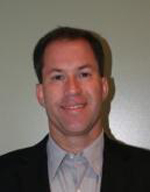In a marriage of two disciplines that don’t often overlap — politics and medicine — a study by Matthew Gabel, PhD, professor of political science in Arts & Sciences at Washington University in St. Louis, finds that group consensus is an effective method for diagnosing Alzheimer’s disease.
Unlike many diseases, Alzheimer’s — a condition affecting 4.5 million Americans — is a condition for which there is no diagnostic biomarker, such as a blood test. While there is evidence that PET and MRI scans can diagnose or predict Alzheimer’s, physicians typically make a clinical subjective diagnosis based on family testimony and testing the patient’s memory and other cognitive skills.
In a study published in the December 2010 issue of the Archives of Neurology, Gabel and his colleagues found that a particular consensus panel called the modified Delphi was generally more accurate than individual experts when considering conventional diagnostic information.
Distinguishing Alzheimer’s from frontotemporal dementia (FTD) was the panel’s primary task. An accurate diagnosis is critical for patients and their loved ones, because mistaking Alzheimer’s for another form of dementia can result in unnecessary treatments and the inability to prepare for the progression of the disease.

“Alzheimer’s is a long-term, devastating disease not just for the patient but for the family. If you don’t know why your loved one is now yelling at you at 5 p.m. every day, for example, it’s extremely stressful,” Gabel says. “If you don’t know what’s coming, as a family member, the odds escalate that you will get divorced, go bankrupt or have your own major health problems.”
Method compares to gold standard of diagnosis
The study consisted of two six-person physician panels, one made of experts in dementia diagnosis, the second consisting of trainees. Panelists considered clinical information as well as fludeoxyglucose F18 positron emission tomography (FDG-PET) images for 45 now-deceased patients.
In keeping with the modified Delphi method, each member first offered an anonymous individual opinion, the results of which were tallied and then revealed to the panelists. After discussion, the panelists attempted to reach a consensus. If they were unsuccessful, dialogue continued until a consensus opinion emerged.
It was up to the panels to determine if “consensus” meant complete agreement among all members or a simple majority.
The consensus opinion was then checked against autopsy results that serve as the only definitive diagnosis for Alzheimer’s, but are, of course, not an option for living patients.
“Using a modified Delphi protocol to arrive at a consensus diagnosis is a reasonable substitute for pathologic information,” Gabel wrote in the study. “This protocol improves diagnostic accuracy and certainty when panelist judgments differ and is easily adapted to other research and clinical settings while avoiding the potential pitfalls of group decision making.”
One setting in which Gabel’s findings will provide enhancement is in scientific drug trials in which he collaborates with neurologists to develop medications to slow the onset of Alzheimer’s in at-risk patients. A key determination in those trials is whether or not subjects have developed Alzheimer’s.
“The whole study hinges on getting that decision right,” Gabel says.
The findings also have important applications for other diseases for which there is no definitive test.
“I think there are pretty clear implications this could help advance the quality of Americans’ health and American health policy,” Gabel says.
An unexpected turn
Gabel never expected that his social science career world lead to his being published not just once but twice in a medical journal. His ongoing work in dementia diagnosis was sparked by his 1996 Robert Wood Johnson Foundation Scholars Program award, connecting social scientists such as political scientists, sociologists and economists to medical issues.
“I’m a guy who had no agenda to do any research having to do with American health policy or any health policy,” Gabel says. “I went into the program and I was exposed to studies on consensus panels that piqued my curiosity.”
Previous consensus-panel researchers began with an assumption that two heads are better than one.
“But they stopped at that,” Gabel says. “I wanted to know if anybody had ever examined the effectiveness of these panels.”
Gabel envisions future studies that will dig deeper into the reasons why panelists make different errors in diagnosis, since these differences improve panel decision making.
“What’s the source of their differences? Is it because they trained in different regions and had different types of patients? Is it because they trained under a particular person? Is it because they’re a psychiatrist versus a neurologist?” Gabel asks. “What we want on a panel are people who make mistakes for different reasons.”
Gabel earned a doctorate in political science from the University of Rochester in 1994. He also completed a master’s degree in advanced European studies at the College of Europe in Brugge, Belgium. He spent 1996-98 at the University of Michigan as a Robert Wood Johnson Foundation Scholar in Health Policy Research, and he was awarded a 2010 fellowship from the John Simon Guggenheim Memorial Foundation.
His research interests include the political economy of European integration, comparative democratic processes and American health policy. He also is associate editor of the journal European Union Politics.